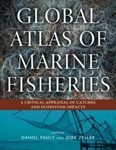About this book
Aquaculture exemplifies the ongoing global struggle to strike a sustainable balance between the conflicting needs of a rapidly increasing world population, human health, ecosystem health, the welfare of wild and domesticated animals, and the economic principles of globalized economies. On the one hand, aquaculture has great potential for providing us with a healthy and nutritious food supply whilst alleviating pressure on captive fisheries and reducing fisheries-induced habitat destruction, overfishing, genetic modification of wild populations, and wholesale waste of bycatch. On the other hand, aquaculture relies heavily on clean water, an increasingly precious (and dwindling) resource that is subject to intense pressure of being used for many competing objectives.
This concise primer introduces students to the basic concepts, opportunities, and challenges of aquaculture with an emphasis on ecological considerations. It provides a critical assessment of current aquaculture practices from a broad, interdisciplinary perspective and from the standpoint of how best to align the two major (and often conflicting) goals of future aquaculture development: minimizing reliance on ecosystem services whilst maximizing productivity.
A Primer of Ecological Aquaculture provides an accessible and authoritative overview for a wide range of undergraduate majors ranging from biology, engineering, and environmental policy to business and management. It will also appeal to a more general academic audience who wish to gain a current overview of the field.
Contents
Preface
Part I: GENERAL PRINCIPLES OF ECOLOGICAL AQUACULTURE
1. Aquaculture Terminology and Basic Concepts
2. The Historical Origins of Aquaculture
3. Seafood and Beyond: Key Aquaculture Objectives
4. Aquaculture Systems as Mesocosms
5. Integrated Multitrophic Polycultures
6. Domestication of Aquaculture Species
Part II: BIOLOGY AND CULTURE OF AQUATIC SPECIES
7. Overview of Aquaculture Species Diversity
8. Environmentally Sustainable Plant Aquaculture
9. Aquaculture of Sponges and Cnidarians
10. Mollusc Aquaculture
11. Crustacean Aquaculture
12. Ornamental Fishes
13. Aquaculture of Freshwater Fish
14. Anadromous Fish
15. Catadromous Fish
Part III: WATER QUALITY PARAMETERS
16. Abiotic Parameters
17. Feeds, Waste, and Stress
18. Infectious Diseases
Customer Reviews
Biography
Dietmar Kültz is a Professor of Physiological Genomics at the College of Agricultural and Environmental Sciences, University of California, Davis, USA. His laboratory focuses on investigating the mechanisms of stress-induced evolution in fish and marine invertebrates. His research spans molecular to organism levels of biological complexity and utilizes reductionist synthetic biology, biochemical, and holistic systems-level approaches to dissect causality between environmental effects on cells and organisms, physiological responses, and complex adaptive phenotypes. He teaches a molecular genetics laboratory course, an introductory aquaculture course, and a stress physiology course at UC Davis. Professor Kültz received his BSc/MS and doctoral degrees from the University of Rostock in Germany. He was a DAAD postdoctoral fellow at Oregon State University, a Fogarty Visiting Fellow at the NIH (Bethesda), and an Assistant Professor at the University of Florida before joining the faculty at UC Davis

















![Les îles Saint-Paul et Amsterdam (Océan Indien Sud): Environnement Marin et Pêcheries [Saint-Paul and Amsterdam Islands (South Indian Ocean): Marine Environment and Fisheries]](http://mediacdn.nhbs.com/jackets/jackets_resizer_medium/26/260268.jpg?height=150&width=107)


















